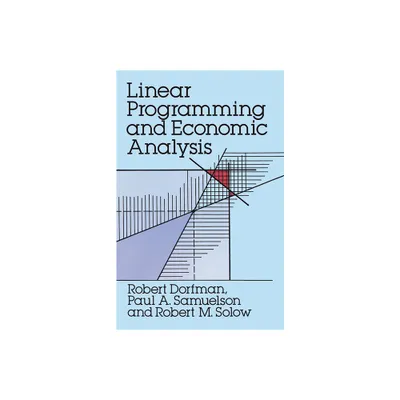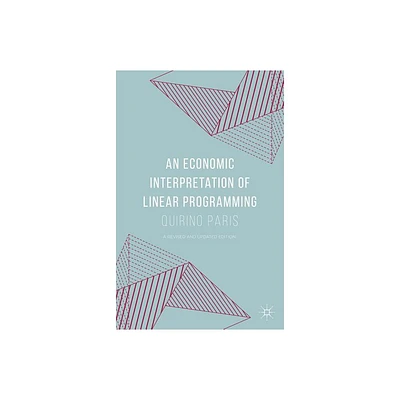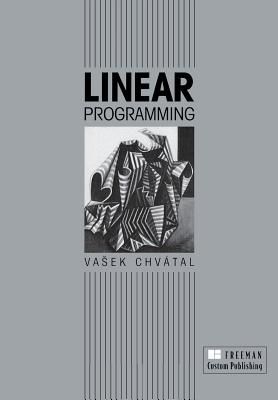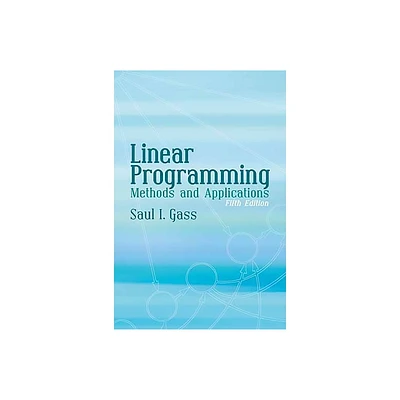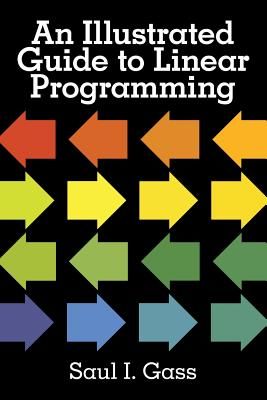Home
Linear Programming and Economic Analysis
Loading Inventory...
Barnes and Noble
Linear Programming and Economic Analysis
Current price: $29.95


Barnes and Noble
Linear Programming and Economic Analysis
Current price: $29.95
Loading Inventory...
Size: Paperback
*Product Information may vary - to confirm product availability, pricing, and additional information please contact Barnes and Noble
Designed primarily for economists and those interested in management economics who are not necessarily accomplished mathematicians, this text offers a clear, concise exposition of the relationship of linear programming to standard economic analysis. The research and writing were supported by The RAND Corporation in the late 1950s.
Linear programming has been one of the most important postwar developments in economic theory, but until publication of the present volume, no text offered a comprehensive treatment of the many facets of the relationship of linear programming to traditional economic theory. This book was the first to provide a wide-ranging survey of such important aspects of the topic as the interrelations between the celebrated von Neumann theory of games and linear programming, and the relationship between game theory and the traditional economic theories of duopoly and bilateral monopoly.
Modern economists will especially appreciate the treatment of the connection between linear programming and modern welfare economics and the insights that linear programming gives into the determinateness of Walrasian equilibrium. The book also offers an excellent introduction to the important Leontief theory of input-output as well as extensive treatment of the problems of dynamic linear programming.
Successfully used for three decades in graduate economics courses, this book stresses practical problems and specifies important concrete applications.
Linear programming has been one of the most important postwar developments in economic theory, but until publication of the present volume, no text offered a comprehensive treatment of the many facets of the relationship of linear programming to traditional economic theory. This book was the first to provide a wide-ranging survey of such important aspects of the topic as the interrelations between the celebrated von Neumann theory of games and linear programming, and the relationship between game theory and the traditional economic theories of duopoly and bilateral monopoly.
Modern economists will especially appreciate the treatment of the connection between linear programming and modern welfare economics and the insights that linear programming gives into the determinateness of Walrasian equilibrium. The book also offers an excellent introduction to the important Leontief theory of input-output as well as extensive treatment of the problems of dynamic linear programming.
Successfully used for three decades in graduate economics courses, this book stresses practical problems and specifies important concrete applications.
